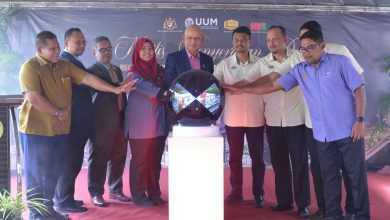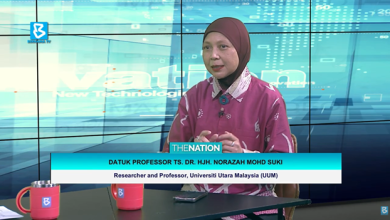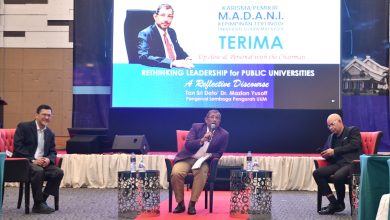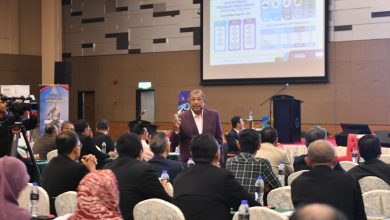LIMA’25: UUM Explores Maritime Security Challenges and ASEAN’s Strategic Role in Southeast Asia
LANGKAWI, 21 May 2025: A talk entitled, Managing Maritime Security in Southeast Asia: ASEAN Security Management in Focus, held earlier today, provided a valuable platform for critical discourse on the challenges and strategic management of maritime security in the Southeast Asian – a region renowned for hosting some of the world’s busiest sea lanes in the world, including the Strait of Malacca and the South China Sea.
Moderated by Prof. Dr Chandrakantan Subramaniam, the Director of the Universiti Utara Malaysia (UUM) Centre for University-Industry Collaboration, the session featured a comprehensive bilateral discussion on the regional maritime security landscape. It focused on ASEAN’s strategies for addressing both traditional and non-traditional threats, including illegal fishing, smuggling, human trafficking and cyber threats targeting port infrastructure.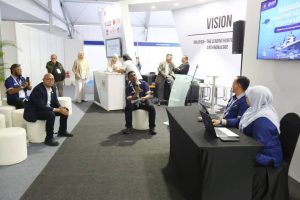
Held at the MoHE Pavilion in conjunction with the Langkawi International Maritime and Aerospace Exhibition 2025 (LIMA’25), the event featured two distinguished panellists who shared their insights.
Assoc. Prof. Dr Bakri Mat, Senior Lecturer in the Department of International Affairs, UUM School of International Studies, presented key issues related to Southeast Asia’s maritime security from a strategic standpoint.
He emphasised the geopolitical significance of the region’s maritime geography and the involvement of external powers such as China, the United States of America and Japan. Dr. Bakri also underscored the need for multilateral dialogue and confidence-building measures to enhance regional security.
Drawing from his experience as a member of the National Cost of Living Action Council (NACCOL) and other governmental policy committees, Dr Bakri advocated for enhanced cross-national strategic cooperation to strengthen responses to maritime crime. He further proposed the development of the Kra Canal as a potential alternative maritime route in the region.
Meanwhile, Assoc. Prof. Dr. Siti Darwinda Mohamed Pero, also from UUM, explored ASEAN’s institutional role in managing maritime security through various platforms such as the ASEAN Maritime Forum (AMF), ASEAN Regional Forum Inter-Sessional Meeting on Maritime Security (ARF ISM-MS), ADMM-Plus, and the Code for Unplanned Encounters at Sea (CUES).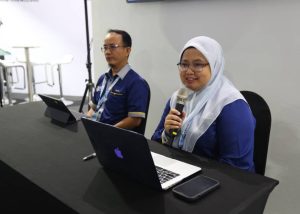
According to her, ASEAN still continues to grapple with the challenge of reconciling its foundational principle of non-interference with the need for collective action. Nevertheless, she stressed the importance of strengthening existing mechanisms through joint exercises and the development of regional standard operating procedures (SOPs).
The moderated discussion session also addressed a range of pressing issues such as the effectiveness of regional maritime patrols, the “ASEAN-minus-X” approach, as well as the need for ASEAN to confront non-traditional threats including cyberattacks on port infrastructure and the impact of climate change on maritime borders.
Both panellists concurred that while ASEAN has served as a facilitator of dialogue, further efforts are needed to enhance the responsiveness, flexibility and integration of its maritime security mechanisms in line with evolving geopolitical realities.
The talk once again reaffirmed that regional cooperation and strategic leadership are the mainstays in ensuring that the security of Southeast Asian waters continues to be maintained in an increasingly complex geopolitical landscape.


